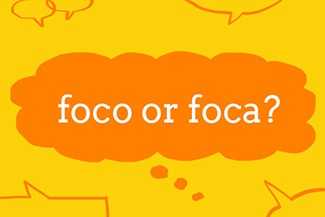This week, the French word we’re taking a look at this week is égal. Listen to its pronunciation by clicking the icon below:
Égal is an adjective which has the feminine form égale (pronounced the same way as égal) and is generally translated into English as equal – this can be in the sense of identical, or in the sense of fair:
une quantité égale de farine et de sucre an equal quantity of flour and sugar
être d’importance égale to be of equal importance
un salaire égal equal pay
des droits égaux pour tous equal rights for everyone
In mathematics, you’ll also see that signe égal is used in French in the same way we talk about the equals sign in English.
Another common meaning of égal/égale is steady or even, in the sense of regular or level:
à vitesse égale at a steady speed
marcher d’un pas égal to walk at a steady pace
d’humeur égale even-tempered
You can also use égal/égale as a noun to speak about someone or something being the equal or match of someone or something else:
être l’égal(e) de quelqu’un to be someone’s equal
trouver son égal(e) to meet one’s match
Ils parlaient d’égal à égal. They spoke as equals.
Il est son égal intellectuel. He is her intellectual equal.
A very common phrase you’ll likely come across in conversational French is ça m’est égal, or cela m’est égal – literally, that is equal to me, or more commonly in English, it’s all the same to me. It’s a phrase used to express indifference, or that you don’t mind something. It’s worth bearing in mind that the tone in which it is used can vary, so be careful when and where you use it in conversation:
Ça m’est égal ce qu’on mange au dîner. I don’t mind what we have for dinner.
On m’a critiqué, mais cela m’est égal. They criticised me, but I’m not bothered about that.
Ça m’est égal, ce qu’il pense ! I don’t care what he thinks!
If you want to say you/he/she etc. doesn’t care, you must change the indirect object pronoun m’ (me) in the phrase: you can find out more information about what indirect object pronouns are and how they work by visiting our Easy Learning French Grammar pages.
On that grammar point, we’ll draw this blog to a close, but we’ll be back with another look at a new French word next week.
Written by Gina Macleod, language content editor.
All opinions expressed on this blog are those of the individual writers, and do not necessarily reflect the opinions or policies of Collins, or its parent company, HarperCollins.



